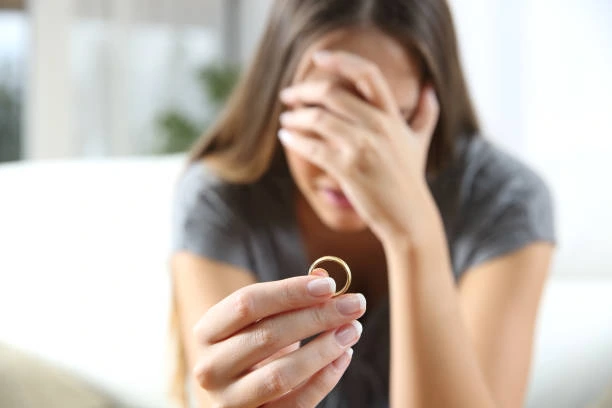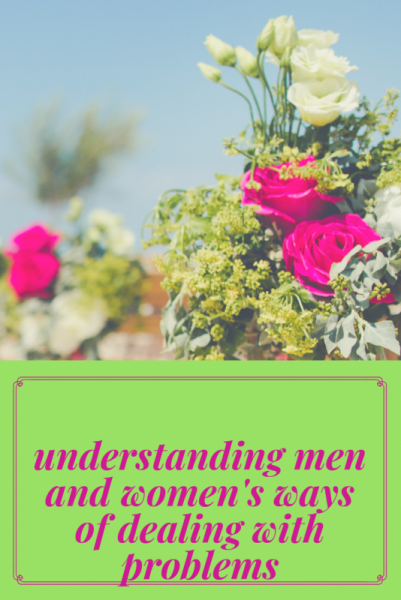Unlovable in Love? 7 Reasons Behind Feeling This Way

Feeling unlovable in your relationship is an overwhelming experience that can overshadow your marriage and destroy it’s foundation with time. You might wonder why you feel disconnected from your spouse, as though love always slips through your fingers and you are left with ache instead of joy.
You are not alone; many suffer this same issue too, and even though it may seem overwhelming, when you understand the reasons you are feeling so, it can be a good step to dealing with such feelings.
In this post, I will show you 7 simple reasons you may be feeling unlovable in love. After reading this post, you will uncover the root of these emotions, which will help you to get the love and connection you always desire. Tighten your seat belt as we start the journey to uncover what’s making you feel out of reach.
Let’s dive in.
First, let’s look and understand what feeling unlovable is.
Understanding the Unlovable’ Feeling:
Feeling unlovable usually comes with a sense of worthlessness, which can impact someone’s self-worth as well as their relationship. This feeling is very different from low self-esteem; it’s about feeling completely flawed or undeserving of love.
This can stem from so many things, like negative self-talk, old baggage and trauma. Other external relationship stressors like rejection, criticism or neglect can heighten your partner’s belief of feeling unlovable, which may lead to self-doubt and insecurity in your relationship.
Reasons You Feel Unlovable in Love:
1) Past Trauma and Unresolved Issues Affect Self-Worth:
Past trauma is one of the major things that can make one feel unlovable. It often leaves a kind of memory that is usually hard to delete from the mind and can affect your self-perception and relationship.
For instance, those who suffered abuse or experienced neglect while growing up may find it hard to trust someone and can see love as conditional. This is about a deep emotional wound that can result in one perceiving him or herself unworthy or unlovable.
This isn’t just about recollection; trauma is a deep, emotional wound that may lead you to perceive yourself as unlovable or unworthy.
2) Overwhelming Comparisons with Others’ Relationships and Partner Distort Reality:
Another thing that can leave you feeling unlovable is comparison. Whether you are comparing your relationship with others or comparing your spouse with others, it can hurt someone’s emotions.
Don’t use social media as a yardstick to measure your marriage, because most of the images there are curated, so when you are exposed to them, it can make you feel unlovable or inadequate. Just understand that your love journey is far different from others and that all the online images are not real.
3) Negative self-talk and low self-esteem undermine self-image:
What you say about yourself matters, and it may determine how you perceive where you are in the world today or in a relationship. I advise people to never say whatever you don’t want in your relationship, because you may get whatever you say. You may want to say that you want your marriage to be successful, and it happens, so what if your negative words come true too?
Again, when you talk negatively about yourself, it may reinforce your belief about not being worthy of love. These thoughts often emerge from early criticism or societal pressures and can feel like an unbreakable habit.
4) Fear of vulnerability and emotional intimacy creates barriers:
You can’t talk about building a good connection with your partner without vulnerability. It is very essential; however, it can be intimidating sometimes, especially when past challenges caused the heartbreak.
If your past relationship ended in heartbreak, you will find yourselves putting up walls, which will make it hard for you to trust again or be open to your new partner. These protective barriers, while comforting, can foster feelings of isolation and the belief that you’re unlovable.
5) Attachment issues from childhood influence relationship patterns:
As I said earlier, your past experiences can cause so many issues in your new relationship. For example, if you are having attachment issues now, it could be as a result of what happened when you were growing up.
Your earliest bonds, especially with caregivers, shape how we view love and attachment, and the truth is that if you experienced inconsistent affection or emotional neglect, you may develop an insecure attachment style.
It may cause you to start being too anxious or avoid getting into any relationship, which can lead to feelings of being unlovable. Experiences like that make one believe that they are incapable of love or unreliable; the worst is that it will affect your ability to connect deeply with your partner.
6) Anxiety about being a burden to others limits connection:
Having the fear of being a burden to someone else can also cause you not to be fully involved in a relationship.
This usually start when you see yourself as either being small or not enough. Seeing yourself in this form will make you avoid relationships because of fear of being dumped when they know you better. This fear also leads to self-isolation, reinforcing the sense of being unlovable.
7) Unmet Expectations and Disappointments in Love Lead to discouragement.
Having high expectations and dreams for your marriage or spouse can also be the reason you are feeling unlovable.
The reason is that when those expectations are not met, you may internalize it, thinking that something is wrong with you experiences of betrayal, rejection, or simply incompatible partnerships can feel like a confirmation that love isn’t meant for you or that you’re somehow “bad luck” in love.
How To Break The Cycle Of Feeling Unlovable In Love:

1) Identity The Root Causes For Easier Solution:
Your first step in dealing with the feelings of not being loved is to identify the root causes of behind it. Most times, this feelings stems from past experiences. When you reflect of what might have brought the feelings, half of the problem is solved.
So whether it’s critical upbringing or just your personal mistakes, it will be easier to heal. Know that your past doesn’t define your future. Recognizing these patterns is the first step toward breaking them, allowing you to rewrite your perception and embrace a positive narrative
2) Engage in Self-Reflection Through Journaling and Meditation:
Now you have known the causes of your challenges, it’s time to take action to resolve. I will advice that you engage in Self-reflection, maybe through meditation or journaling, as they will help you understand why you feel unloved and make you feel loved.
Through journaling, you have tackled insecurities, and it will help you forget all built-up emotions. Meditation, in the other hand, will add mental clarity and and restore your self-worth
The first step is to write down all your achievements and all the blessings you can count. These reminds you of your values each day. Together, they build self-awareness and acceptance, which will help you to focus on the qualities that make you unique and lovable.
3) Set Boundaries to Protect Your Emotional Well-being:
4) Practice Positive Affirmations to Build Self-Confidence:
Affirmations are another tool you can use to quench the feelings of unworthiness. According to the Bible, “the word is near you, even the words of faith you speak.” Affirmations is all about speaking the words of what you believe to yourself. Start by saying something like ” I am worthy of love, or I deserve happiness,” over and over to yourself.
These simple but powerful reminders can replace those negative beliefs you always have over time; however, you have to do it consistently. Note that the effects may not be immediate, but it will come in due time.
Positive words of affirmations will help to shift your self-perception and will also reinforce confidence and self-love as time goes on. By repeating these words over and over, you will gradually break the foundation of low self-worth for a more loving and empowering relationship with yourself.
5) Focus on your strengths and celebrate small wins:
When you are bent on dealing with the feeling of unlovable, you may forget to take care of your personal strengths. That will cause another issue in the future. My advice to you is to start discovering those things that make you unique and worthy.
It could be your resilience, creativity, or empathy; just write them down on paper so you can also check your progress. Recognizing your strengths and progress helps counter negative self-perceptions and boosts self-esteem, nurturing a belief in your intrinsic value and capacity for love.
6) Develop self-compassion and treat yourself kindly.
Self-love is another popular way you can combat the feeling that you are not worthy of love. This is because nobody will love you if you don’t first love yourself. Therefore, start loving yourself again, and treat yourself with the same kindness you will show to someone else. When you make a mistake, don’t go on criticizing yourself; replace it with understanding, reassuring yourself that everyone makes mistakes.
Start taking proper care of yourself; travel to anywhere you can; eat whatever you want; and make sure you treat yourself better than you do to anybody. The deal is to restore self-love and improve your self-worth at the same time.
7) Change Your Negative Mindset To Positive:

If you always see yourself thinking or talking badly about yourself, then it’s time to change that. Remember that “as a man thinks in his heart, so he is.” That’s the reason to change your negative thoughts to positive.
Take notes of your self-talk, and check if you are constantly harsh on yourself or not. Notice these moments and challenge them by asking, “Is this thought true?” By doing this, you are trying to replace the negativities with positive thoughts.
Over time, practice reframing negativity with gentler, balanced alternatives. Instead of saying that you are not good enough, say, “I know I am not where I am supposed to be, but am a work in progress.” Using this positive self-reflection will create a healthier, self-winning mindset.
In conclusion:
Feeling unloved can be a very heavy burden if you are not sure what to do. The good news is that there are several reasons you are having those feelings; understanding what they are sets the pace for eradicating from your mind.
I have listed themselves down for you in this post. As you start working on all the tips to navigate those feelings from your mind, it will be easier to rebuild your self-worth, so you can find again and reconnect with your partner again
Note that all these mentioned above are not quick fixes; it will take a little time and patience to see the results you desire. Keep working on yourself and practice self-compassion, as they will help you get results on time. Remember that love is always close to you—you are deserving of love just as you are.




